The art of appreciating art when you know nothing about art
Last Updated on 5 July, 2024
On any trip that I take, I usually try to fit in some sort of arts and culture activity into my itinerary beyond the usual tourist attractions – for me that usually means a museum visit or watching a show. Experiencing the arts and watching performances in a foreign country is an easy way to get a glimpse of their way of life and local culture. It often reveals something about that country’s history and lifestyle that can’t be expressed through factual figures or tourist information panels.
But art isn’t always something easy to consume. Most people think that proper art appreciation involves being in a musty old gallery scrutinising obscure paintings in past centuries or having detailed knowledge of the fine arts, but I’ve since figured that those are just stereotypes; there are so many ways to appreciate the arts and the beauty is that everyone experiences the arts quite differently.
So I thought I’d talk a little bit about how I, this layperson without much artistic background at all, started to appreciate art a bit more thanks to my travels.
Am I an art expert?
Who am I to teach anyone about appreciating art, honestly? I worked in the arts industry for a few years and in an ideal world it would have made me become super learned and knowledgeable about art. While I think that working in the arts has made me a lot more open to the idea of appreciating art, the truth is I’m still pretty clueless about the technical stuff.
My standard art critique usually ranges from “Oh that’s nice” to “I would never put that in my hypothetical mansion” (Try it for yourself, it’s a way to entertain yourself when you’re trying to blend in with the highbrow artsy types). My personal favourite jargon to get through intellectual conversations about art that I really don’t get usually include buzz words like ‘Abstract’, ‘Conceptual’ and my current favourite word ‘Meditative’, as in “wow this sculpture does have some meditative qualities, eh?”
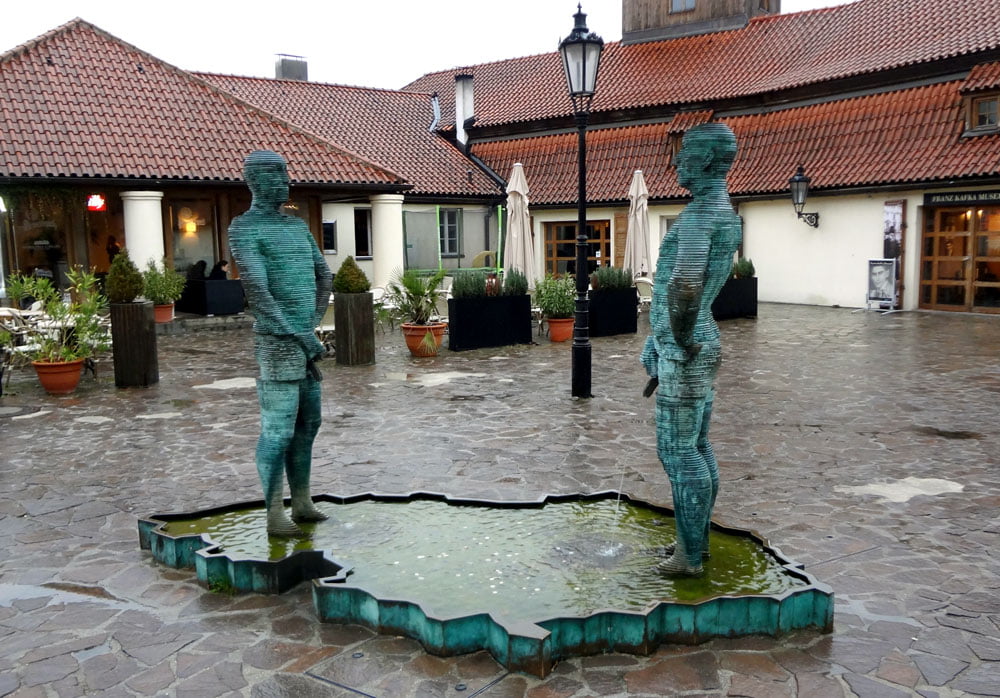
How a layman can start appreciating art
So now that I’ve revealed myself to be a bit of a fraud when it comes to having any real art knowledge, the one thing I did learn through my exposure to art is that despite not being any sort of art expert, it is still possible to develop a certain appreciation for the arts, which has really helped make the arts and culture parts of my travels both more efficient and more enjoyable experiences.
I still get the occasional dud of course, or get let down by stuff I had high expectations for, but the beauty of arts and culture is that you never quite know how you’re going to react to something. Also, timing can some times be key – what you don’t appreciate right now may be something you’ll love later on in life, but you never know till you give it a shot right? (That’s not the case for Cats the Musical though, I watched it once in London’s West End and fell asleep. Thought it was jet lag so when the opportunity came up to watch it in Singapore again I thought I’d give it another shot… still hated it. Can’t win them all…)
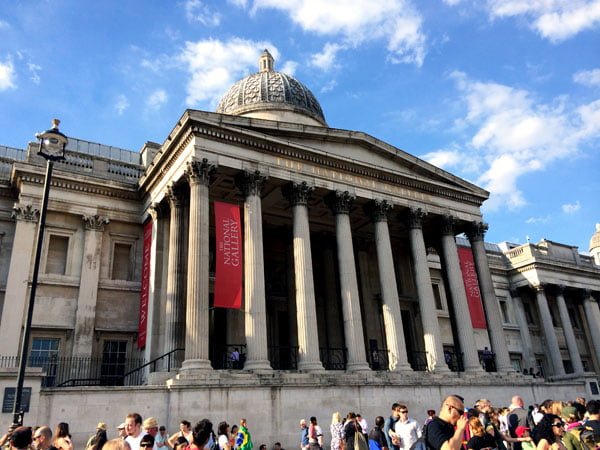
Of course you arty folk should go right ahead and keep appreciating the art that you love, but these tips are for those of you who have never really considered arts and culture an essential part of your travel itinerary. Here are some of my thoughts on how you can learn to appreciate art to make your travels a much more enriching experience, even if you profess to know nothing about art.
Start small
Big tip number 1: don’t be too ambitious. If you tend to avoid cultural stuff completely, start small by picking just one cultural thing to do in your entire trip, or look for a genre you know you’re likely to be more receptive to.
Don’t jump into the bizarre headfirst or commit too much time and money to some major exhibition you are unsure about, or queuing for hours to view something really obscure. It’s fine if it turns out well but if it turns out terrible, you’re liable to be overwhelmed and turned off by the experience, which would be a huge pity if it ends up scarring you for life.

If you have no idea at all where to begin, go see the ‘famous thing’ that the country is known for. While it may seem cliched or the touristy things to do, there usually is a reason these attraction become so famous in the first place. You may get tourist traps or underwhelmed by reality, but you might also be wowed by it – you honestly won’t know until you experience it for yourself, but at least you can say that you’ve been there and done that.

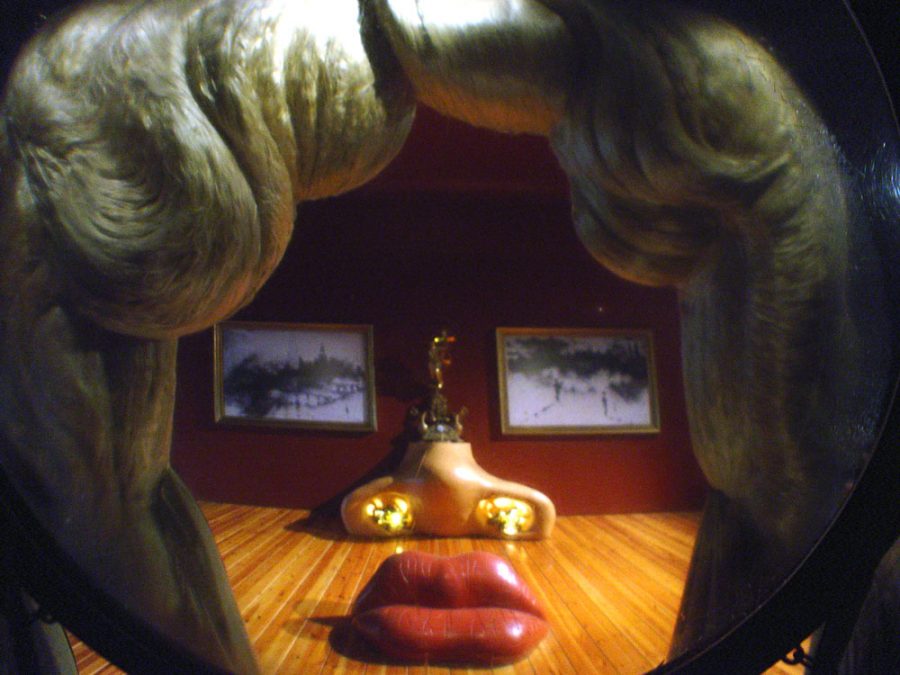
Pick the free option
Many countries have great free options for the arts, so if you have a strict budget or are concerned about wasting money on something you might not enjoy, free stuff is a good way to get a taster. For example, London’s British Museum is massive and most of their collections are free, as is the Tate Modern museum which I always enjoy visiting. Some museums have special free days/hours as well as concessions if you are a student or a senior, you can plan your itinerary around that accordingly.
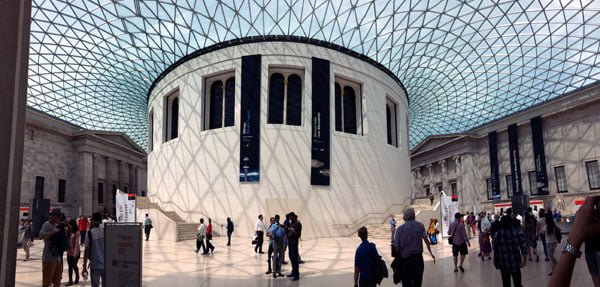
Or you could head to the streets for lots of street art which is an entirely free experience as well – I have a whole bunch of street art guides to help you out. Sometimes I just chance upon cool exhibitions as well that I pop into and get pleasantly surprised by. In Lisbon I found a lot of cool street art areas but also came across a Vhils exhibition in Belem randomly and I absolutely loved it.

You will need to do your research – free or cheap entrance may require you to work a little bit harder to get them. Some things to consider when planning your trips to save money:
- Go online: many museums and other places of attraction offer cheaper prices if you book your tickets early and online. Look up these options before you go. Often this saves you time as well as you won’t have to queue on site. Some examples of these include the Vatican Museums in the Vatican City and the Colosseum in Rome.
- Aggregator discounts: aggregator sites like Klook or Viator may offer discounts to their registered users that can help keep prices low. If you are loyal to certain sites, you might get cashback or more discounts through their loyalty programs as well.
- Last-minute tickets: Some places offer last minute tickets at discounted rates to fill seats, especially great if you are a solo traveller and don’t have to worry about sitting with your friends. London’s TKTS booth for last minute play tickets is one that I often check when I am in town – that’s how I ended up watching Kinky Boots and Everybody’s talking about Jamie for cheaper.
- Student/Senior prices: Students and elderly often enjoy some discounts, especially in Europe. Take full advantage of these perks – make sure to bring your student or some relevant ID with you when you travel.
Have backup options
My ability to appreciate art is quite dependent on my mood for the day, and that is usually linked to how packed my itinerary is. I generally try and watch a show in the evening on days when I’ve done a lot of afternoon walking and my legs need a break, and I plan my museum visits in the morning when I’m still a little more energetic. If I’m really just not in the mood for experimental stuff that day, I go do something a little more tried and tested instead.

This works better when your itinerary is more flexible, but what I usually do is have a list of ongoing events happening during my trip and mark them on my map so in case I change my mind last minute, I can see whether I’m nearby to check it out.
ENJOYING ART as AN AMATEUR
Picked something to see already? Now here’s what you do to enjoy your cultural experience when you’re in the theatre or at the gallery. For me, art appreciation goes beyond just looking at something and thinking it’s pretty – the best sort of art makes you pause in your step or makes you think about how that art came to be and consider its contexts and subtexts more thoroughly. Good art sticks with you long after you’ve seen it.
Have an open mind
Be open to the idea that art may not be what you expected it to be. Expose yourself to new experiences to broaden your worldview and find more things to appreciate. My personal motto is to try anything at least once, which has made for some really interesting experiences.
In Prague, I went to see two types of performances that the Czechs are famous for: the traditional opera Don Giovanni and a blacklight theatre show by Laterna Magika called Wonderful Circus. I expected to be bored by the former and wowed by the latter, but was wrong on both counts – the opera was surprisingly engaging (I always thought it was someone standing on a stage and singing and was surprised by the stage set and how it was more like a musical) and I found blacklight theatre a snooze and kinda trippy. You honestly never really know until you try.
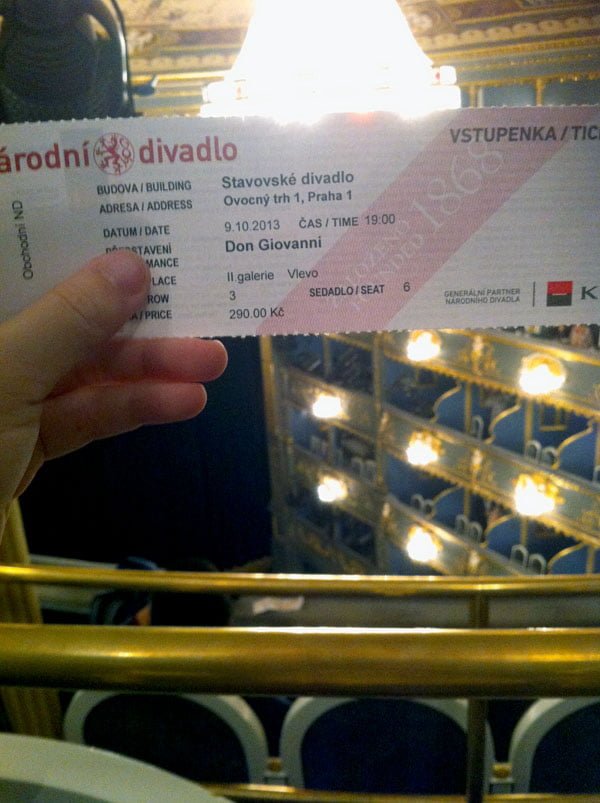
Step out of your comfort zone
Some things may seem really obscure to you, but try thinking about it from the context of the locals, and how that country’s culture shaped the art into its current form and you might appreciate it more.
I saw Vietnamese water puppetry in Hanoi, and learned that it this art form evolved because the shows were often held in paddy fields out in the countryside. While the stories told revolve around daily life and may seem rather simple and boring to a foreigner, I think it does give context to what life for a typical Vietnamese person might have been like in the past.

Go with what catches your eye
Through a combination of exposure through my arty friends and my own trial and error, I’ve discovered preferences for certain types of art forms and that I tend to gravitate towards certain styles of work. Over time you’ll discover what your preferences really are when it comes to enjoying art, which makes it a lot easier for you to make a decision on whether or not to see something.
Just because you visited the Louvre to see Mona Lisa doesn’t mean that’s the only thing you should see. Walk around and you might find something else that’s a lot less crowded and perhaps more meaningful to you. This is also why I tend to get through museums quite quickly because I’ve learned to just skip the stuff that bores me.
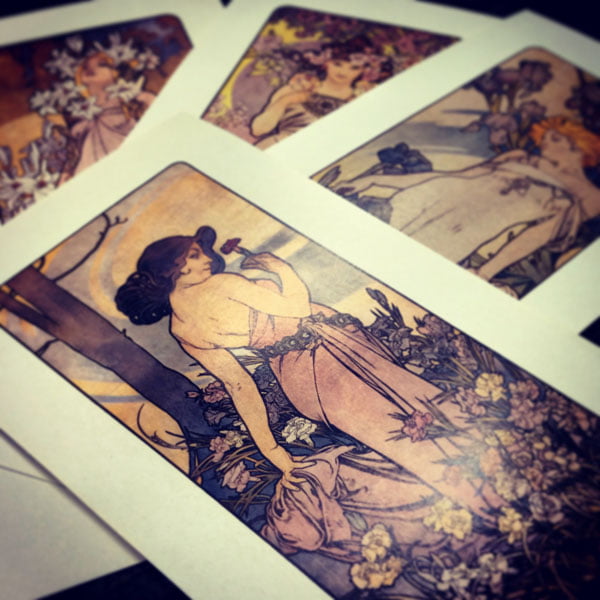
WHAT HAPPENS AFTER?
You have consumed art, congratulations! What happens next? Appreciating art isn’t just about that one moment but what happens after and how it impacts you down the road.
You don’t have to love it
Don’t feel bad if you end up hating what you watched – at least now you know what you don’t want to watch in future. Artist statements and descriptions of artwork in marketing materials can be quite misleading, so it’s not uncommon to find yourself watching something that’s not what you expected from the description in the brochure. Also, weird experiences make for great travel anecdotes so at least you’ll have a good story to tell even if you hated the art.

A little research helps
Sometimes things only make sense when you have more context, which means doing a little bit of research after your cultural experience. Do yourself a favour and do a quick google after your art experience to see what turns up, it could give you quite a different perspective from your actual experience. I do a lot of research and fact checking for my blog posts, and some times I am surprised by the explanations and views from other people and I come away with a better, more in-depth understanding.
Here’s a tip: take down some key names or pointers if you can so you’ll know what to google later on.
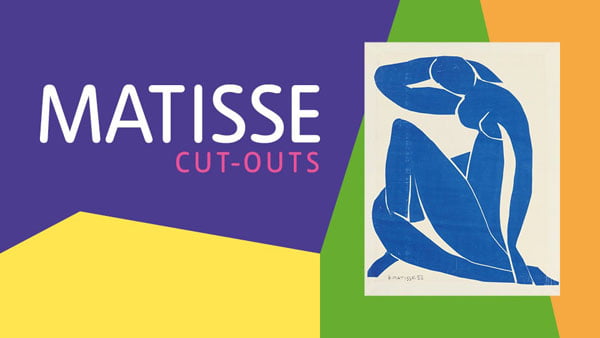
So, the next time you visit a place, don’t automatically skip all the museums and galleries, and remember that art often exists beyond these spaces as well. It’s true when they say that there’s something for everyone, you just need to find what that one is for you.
My art preferences
Anyway if you’re curious, here’s a little of what I’ve discovered about my arts and culture preferences through my travels:
- I like museums and galleries, especially if they are free or have interesting architecture, but I have to space it out and I need a lot of sitting down in between :P
- I tend towards certain themes when it comes to the visual arts – very vibrant colours, graphic monochromatic styles or intricate hand-drawn works. Nature and works that obviously show a lot of detail also tend to catch my attention. Some favourite artists that I’ve discovered are Dali, Mucha, Gaudi and I do love me a good piece of street art.
- Stuff I don’t like: I don’t do historical stuff and dates very well, moving images and contemporary dance and music tends to make me sleepy as well. I like stuff that’s large and that I can understand – abstract and conceptual works are often lost on me.
Do you work the arts and culture into your trip itineraries? What are your favourite types of arts and culture activities to check out when you travel?




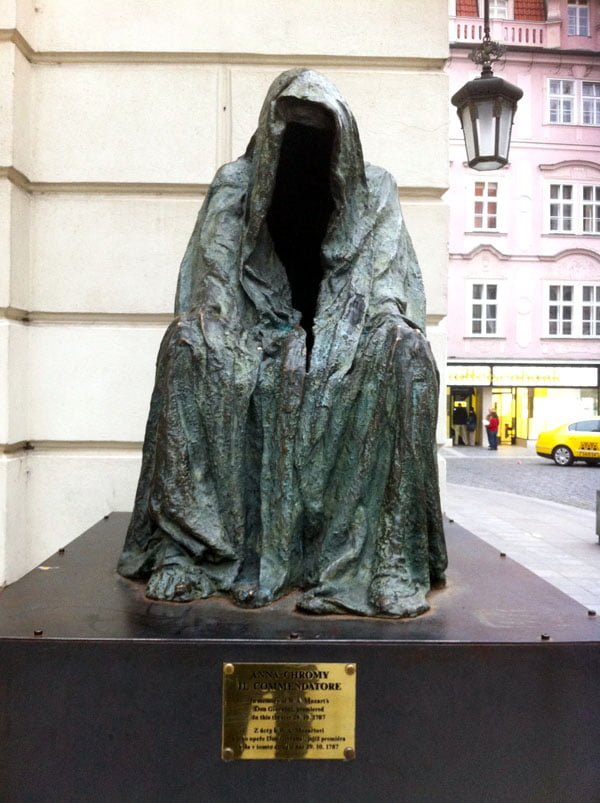
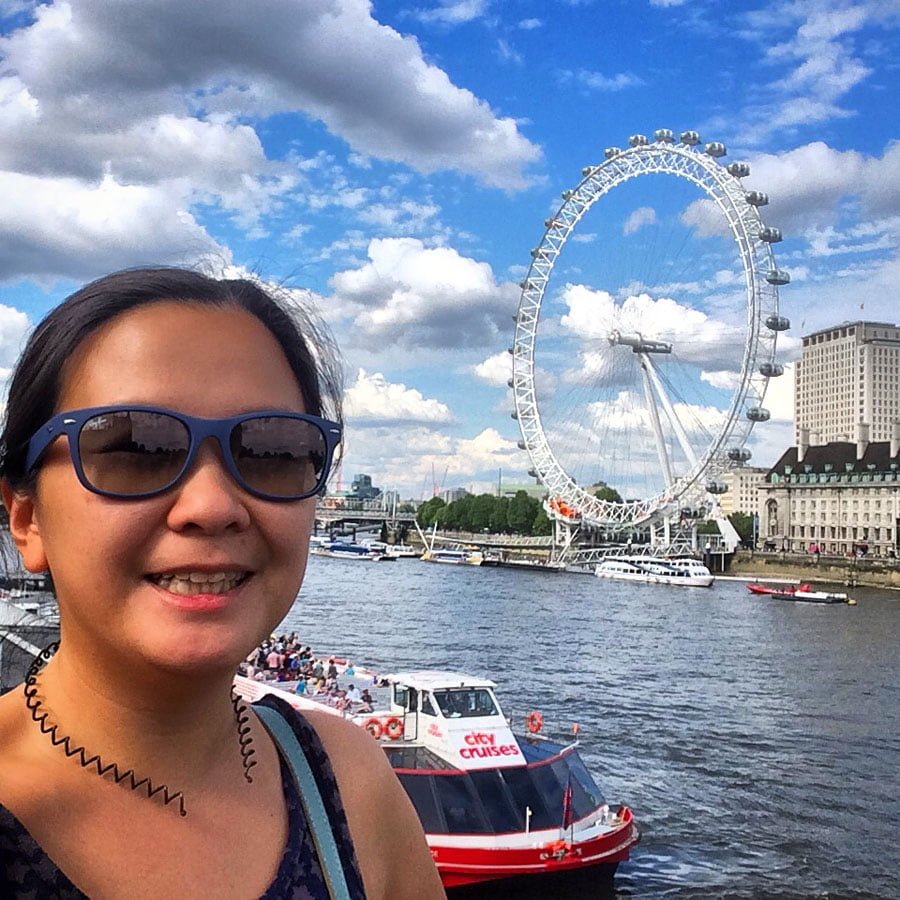
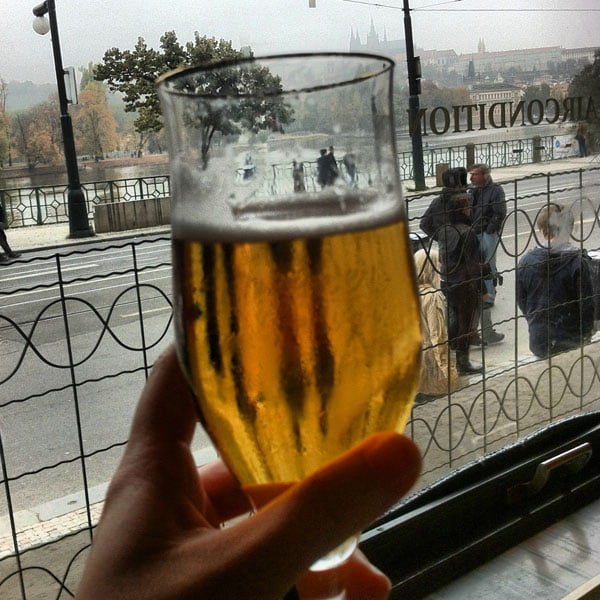


Great points and I think you’re totally right. I love how your dress in the first picture matches the artwork! Was that a coincidence? Also, I remember seeing the Kafka sculpture in Prague and being like – ‘I’m not sure I get it…’
Thanks Charlie! yeah I didn’t intentionally match the dress but it’s kinda an awesome coincidence :P
The Kafka sculpture/installation thing in this post is just… odd. I feel like there’s meaning behind all that which I don’t fully understand :P his other sculpture in the Jewish quarter with the headless man is interesting though. Still a little bit odd, but less bizarre for me!
I feel there’s a meaning behind a lot of Kafka related works that I don’t fully comprehend (perhaps because I haven’t read enough of his work). I like like the sculpture though, in a strange way, it’s certainly quirky and memorable.
I can attest to your “I need a lot of sitting down in between” Jac! ;p
My tip for visiting museums and galleries is to not pack them or rush through them. Take the time and space to explore on that visit, and just walk away with whatever much you could, instead of trying to accomplish or cover it all! The least expectations, the more amazing the experience; and if you look at something and it doesn’t speak to you, then let it be – don’t try to force yourself to understand it, it might come later, or not come at all.
Heh I concentrate better when my legs are not tired #lame(hurhur)excuses
I think that’s a good point though, not trying to do too much or having too high expectations. Often for travellers there always seems to be some sort of imaginary tickbox and checklist we try to achieve in a short period of time, whereas with art sometimes it just doesn’t work that way, and takes time to speak to you.
But yeah, there is art that i’m pretty sure i’m never going to get no matter how long I spend on it, not in this lifetime at least :P